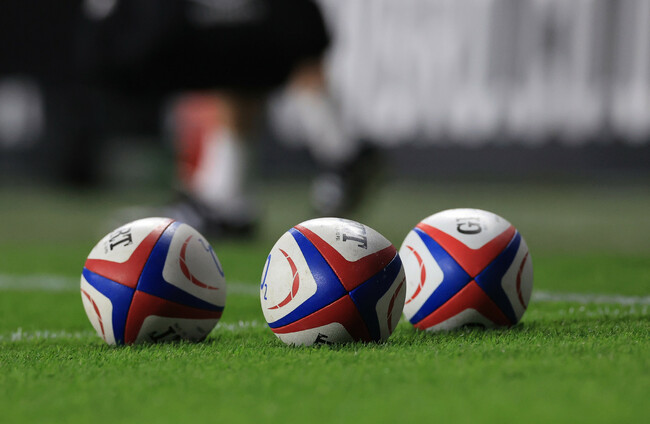RUGBY’S GREATEST CHALLENGE continues to look even more worrying in light of the latest news relating to the possible after-effects of playing at the top level.
A new study in Scotland suggests that ex-international players are twice as likely as the members of the general population to develop neurodegenerative disease, three times more likely to have to deal with Parkinson’s disease, and 15 times more likely to develop motor neurone disease.
The concerning figures were discussed today on the latest episode of The42 Rugby Weekly Extra - a podcast available to members of The42 every Monday and Wednesday.
The study has a fairly small sample size of 412 male, Scottish, ex-international rugby players and just over 1,200 matched individuals from the general population.
But rugby cannot ignore the latest stark warning. More study is required, particularly as this news comes hot on the heels of more lawsuits against World Rugby and national rugby unions, including the IRFU, related to the effects of concussion.
Speaking on The42 Rugby Weekly Extra, ex-Ireland and Melbourne Rebels performance analyst and coach Eoin Toolan said the new study left him feeling alarmed, even if he believes rugby has made progress in how players who suffer head injuries are treated.
“There’s another study coming out from New Zealand soon with a larger data set of about 12,000 first-class rugby players from 1950 to the year 2000 which is going to point towards more significant trends,” said Toolan.
“There’s a couple of points at play here. Obviously, the profile of the game was extremely different in the amateur era, the profile of contacts was very different. There is a much higher velocity of impacts now.
“You would say the nature of care and the awareness of head contacts in terms of how players are managed these days, even compared to what I started out my career in the late 2000s… players were getting knocked out in training on a Thursday and playing on a Saturday, which most definitely doesn’t happen anymore.
“That side of the game has far improved. If you go back to the mid-90s, there was no awareness around concussion.”
Willie Stewart, the consultant neuropathologist who led the new Scottish study, has suggested that rugby needs to reduce the amount of contact done in training sessions and he also says that the sport needs fewer games.
Toolan agrees that reducing the number of big games that pro players have to get through would be a positive measure.
“In the amateur era, there wasn’t this volume of games that players have week-to-week, and extremely confrontational games,” said Toolan.
“There are only going to be more and more lawsuits given the cases that are now presenting themselves. 15 times more likely to get MND is a scary stat. Something has to give and it has to be a case of reducing the number of games players are exposed to.”
And yet, Toolan believes that rugby will always involve a high degree of danger when it comes to head contact.
“It’s difficult,” he said. “The duty of care to the player has improved significantly and that can act as a deterrent moving forward. The sub-concussive impacts are a little bit more difficult to pick up but there is such a focus now on the concussive impacts. A one-week standdown is probably not enough and needs to be extended.
“You never want to be dispassionate around what’s happening to people. It is a contact sport. You use your shoulder to make contact with opposition players. There is inevitably going to be contact with the head in the game of rugby union.
“Yes, we can bring in elements to make it a safer game but ultimately it’s a choice for the player whether you want to play that type of contact sport that leaves you exposed to head collisions. It’s a bit like saying to someone training to be a boxer, ‘Don’t be a boxer if you don’t want to be punched in the head.’ It’s a natural symptom of what’s going to happen in the sport.
“We want to make rugby a safer game but at the end of the day, it’s a contact sport and there are going to be those collisions. From my perspective, it’s more about the duty of care to players that suffer those collisions. That’s imperative but you also don’t want to take away from the fabric of the game.
“The interventions we’re seeing nowadays – the TMO consistently looking for head contacts – is actually deterring people from the sport because it’s not an entertaining sport. So rugby is in a challenging space. There has to be a duty of care and massive awareness about what’s involved in playing the game.”
To get access to The42 Rugby Weekly Extra, which comes out every Monday with Gavan Casey, Bernard Jackman, and Murray Kinsella, as well as every Wednesday with Eoin Toolan, become a member of The42 at members.the42.ie.

